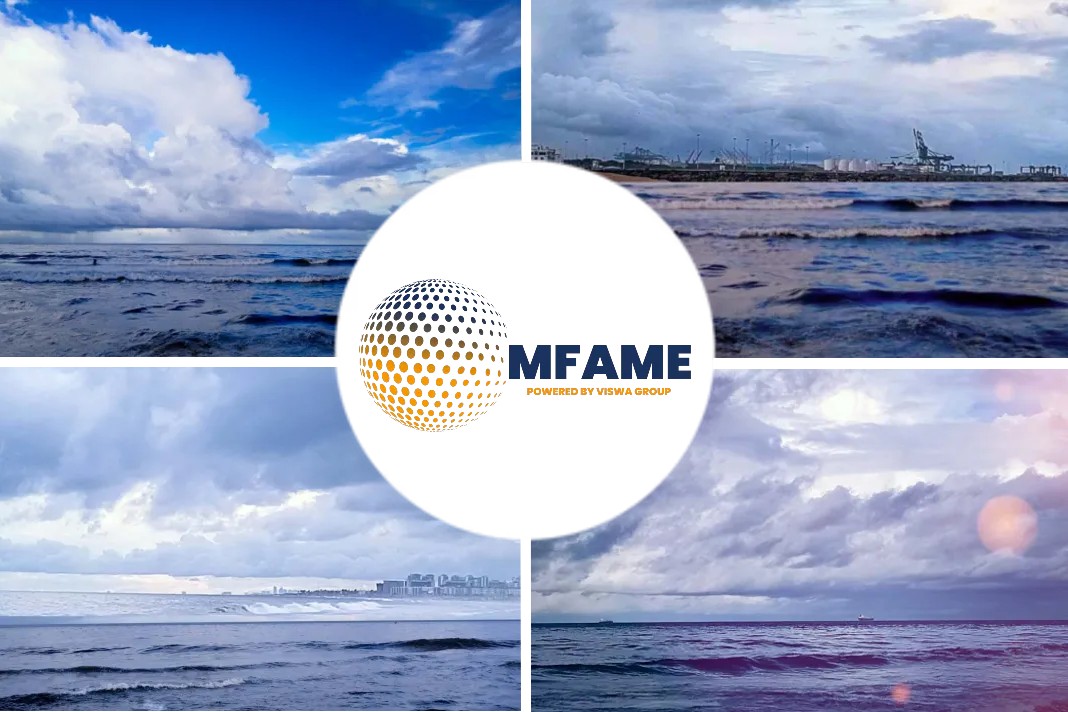- Manfred Low Cheng Jing’s company, Yuk Tung Energy, owned a tanker in 2018.
- It was photographed allegedly transferring gas oil to a North Korea-flagged vessel in the East China Sea.
- When Low learned what had happened, he obstructed justice by disposing of his work computer and a mobile phone.
- This impeded the Singapore authorities’ investigations into the potential breach of United Nations sanctions.
A recent news article published in the Today states that jail for S’porean businessman who got rid of potential evidence on illegal gas oil transfer to North Korean ship.
Transferring gas oil to a North Korean vessel at sea
Shortly after news broke that his company’s tanker had allegedly breached United Nations (UN) sanctions by transferring gas oil to a North Korean vessel at sea, Manfred Low Cheng Jing decided to get rid of potentially incriminating evidence.
At the time in 2018, Low was a director at Yuk Tung Energy, a Singapore-incorporated oil trading and bunkering firm that owned the tanker in question.
He disposed of an Apple iMac desktop computer, as well as his mobile phone, in order to impede investigations by the Singapore police’s Commercial Affairs Department (CAD).
He then lied that the devices had been destroyed when a car ran over his bag, but later admitted to discarding them.
Prevailing UN sanctions
On Tuesday (June 7), Low, now aged 31, was jailed for 15 weeks after pleading guilty to obstructing justice. Another such charge was taken into consideration for sentencing.
Under prevailing UN sanctions, ship-to-ship transfers of refined petroleum products to and from North Korea-flagged vessels are banned.
However, in January 2018, news media here and overseas reported about a transfer of gas oil from Dominican-flagged tanker MT Yuk Tung — owned by Yung Tuk Energy — to a North Korea-flagged ship, Rye Song Gang 1, in the East China Sea around Jan 20 that year.
Four days later, Japan’s Ministry of Foreign Affairs published a press release about the case.
CAD then began investigations into Yuk Tung Energy and its officers. When Low learned about the news, the Singaporean promptly travelled to Kuala Lumpur in Malaysia.
Discarded impact at dumpster
The court heard that another director and the company’s key decision-maker, Mr Benito Aloria Yap, then supposedly went to the firm’s office premises, removed all physical documents relating to the firm and moved them in cardboard boxes to a car.
Mr Yap allegedly told a staff member to remove Low’s iMac, which was sent to Low’s home. Low then discarded the computer at an unknown dumpster in Singapore.
The iMac contained information about Yuk Tung Energy’s operations, and Low was aware that this would be relevant to the police’s probe into the firm’s activities.
He knew that the company’s business operations were shady and did not want the police to retrieve incriminating evidence, prosecutors told the court.
Mr Yap also apparently told another employee to remove a shipping executive’s computer — used for filing bank documents, issuing payment vouchers, paying bills and processing claims — and store it elsewhere.
Low had been learning from Mr Yap how to run the business.
2 computers missing
On Feb 2, 2018, CAD raided Yuk Tung Energy’s office to seize evidence but could not find the two computers. They have not been recovered to date.
The following day, Low and several other company officers met Mr Yap in Johor Bahru, Malaysia to discuss how to respond to the media reports on the alleged ship-to-ship transfer.
During its probe, CAD managed to obtain only some information and documents about Yuk Tung Energy’s business operations, including spreadsheets detailing oil sales reports.
Mr Yap has not been charged and remains at large.
Singapore’s reputation affected
On Feb 13, 2018, the Singapore Government received a request from the UN for information on transactions related to the vessel MT Yuk Tung.
Specifically, the UN asked for an explanation behind the alleged ship-to-ship transfer, copies of documents for the petroleum product carried aboard MT Yuk Tung, and other things such as the identity and contact of the North Korean point of contact or persons who arranged the transfer.
In an impact statement, Singapore’s Foreign Affairs Ministry addressed how Low’s actions had adversely affected the country’s economic reputation and competitiveness, as well as its international reputation and commitment to uploading its obligations under the UN sanctions.
In particular, the statement — signed by Mr Chee Wee Kiong, then the Ministry of Foreign Affairs’ permanent secretary — noted that Low’s actions frustrated the authorities’ ability to complete their investigations into the suspected violation of UN sanctions.
This was especially during a period when North Korea had launched various missiles, projectiles, rockets and artillery shells from December 2010 to February 2018.
In March 2018, MT Yuk Tung and Yuk Tung Energy were also added to the UN Sanctions List. This affected how other Singapore companies are perceived in the global market, the prosecution said.
Deputy Public Prosecutors Ben Mathias Tan, Regina Lim, Koh Mun Keong and Samuel Chew sought three to five months’ jail for Low.
They noted that if he could have been charged with offences under the UN Act 2001, he would also have been jailed if convicted.
Low’s lawyer, Ms Diana Ngiam from Quahe Woo & Palmer, asked for three months’ jail instead. She stressed that Low had never intended for the business operations to breach UN sanctions and that he had always been taking instructions from Mr Yap.
Low “panicked and decided foolishly” to dispose of the iMac. He knew it had been removed from the office premises only when it was taken to his home, Ms Ngiam added.
For obstruction of justice, Low could have been fined or jailed for up to seven years, or punished with both.
Did you subscribe to our newsletter?
It’s free! Click here to subscribe!
Source: Today Online
















